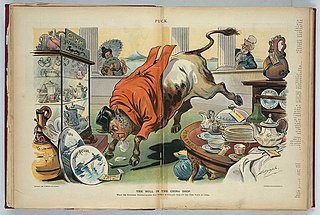NOVEMBER 7, 2024 – “What in the world happened to the Republican Party?” Democrats had been asking ever since Trump assumed unquestioned and unquestionable control of it. In the run-up to the 2024 election, pundits predicted that if Trump lost, the party would lie in ruins.
After Trump’s decisive defeat of Harris on Tuesday, however, the shoe has switched to another foot. In a public display of self-flagellation—at which Democrats are especially good—party critics and pundits ask, “What happened to us?” and “What is the way forward?”
In a scowling email yesterday, progressive stalwart Bernie Saunders blamed Democrats for Trump’s victory: “It should come as no great surprise that a Democratic Party which has abandoned working class people would find that the working class has abandoned them.” I disagree. It wasn’t the Democratic Party that abandoned any constituency within its broad coalition. It was the nearly 73 million Trump voters who abandoned character, integrity and decency as qualifications of a person seeking the office of President of the United States.
For years now, many of us have been asking, “What is the draw? What leads people to follow a guy like Trump?” Ever since his 2016 surprise win in the electoral college sweepstakes, a whole cottage industry has thrived among pundits seeking to explain to their followers the basis of the Trump phenomenon. In the main, we are told, blame falls on the “elites”—out of touch urban liberals with advanced degrees and high incomes, who presume to lecture the “working class” on high-falutin issues such as climate change and the preservation of democracy, without caring, really, about the price of a gallon of milk or a gallon of gas or the pitiful money of a Door Dasher who used to make union factory wages at a U.S. Steel plant in Pennsylvania. Additional blame, so the conventional wisdom goes, can be pinned on the Democrats’ failure to take illegal immigration seriously and the Dems’ obsession with LGBTQ rights. Little is said by the self-flagellating Democrats, however, about the party’s “failure” to support Christian prayers in public schools or espouse tax breaks for the wealthy; about Democrats refusal to compete with Republicans in fear-mongering or the decision not to tell two lies for each one of the Trump’s fibs. How many critics of Democratic strategy think less emphasis should’ve been placed on women’s health and legal access to abortion? Or that Harris should have advocated withdrawing all support for Ukraine?
Hindsight is always sharper than foresight. In retrospect, Biden should’ve announced sooner that he wasn’t running for re-election. But what would’ve been the optimal juncture? If July 21 was too late for his announcement, what would’ve been too early to avoid lame-duck political weakness and effectiveness?
Could the messaging by Democrats been more focused on the “economy”? Sure, but with inflation diminishing, employment at historic lows, 401(k) accounts lifted by a long bull run in equities, and the economy growing robustly, what should the Democrats have highlighted—a plan to expand job-training for better wages? Trump tariffs? Something more generous than what Harris proposed to help first-home buyers?
No, I don’t blame the Harris campaign or Democratic strategists and tacticians. I blame much larger targets: a culture in which sports, entertainment, and bright shiny objects attract far more of our time, focus, and attention than we are willing to devote to understanding the issues and our system of governance; greater effort devoted to critical assessments of candidate qualifications rather than choosing on the basis of attention-grabbing rally antics and clever rhetorical flourishes.
Moreover, I blame an anachronistic constitutional framework. The existing structure encourages gridlock and sanctions minority rule. Aggravating the inadequacies of our system are the distortions caused by obscene and corrupting amounts money in politics and by long-standing disparities in education, income and wealth. Until these structural issues are addressed; until real reform is undertaken, we will wallow in the fiction that a bull in a china shop “shaking things up” is our best option. The most we can expect from that strategy is a lot of bull sh _ _ in a shop littered with broken china—not a country providing ascendant prospects.
Subscribe to this blog and receive notifications of new posts by email.
© 2024 by Eric Nilsson
